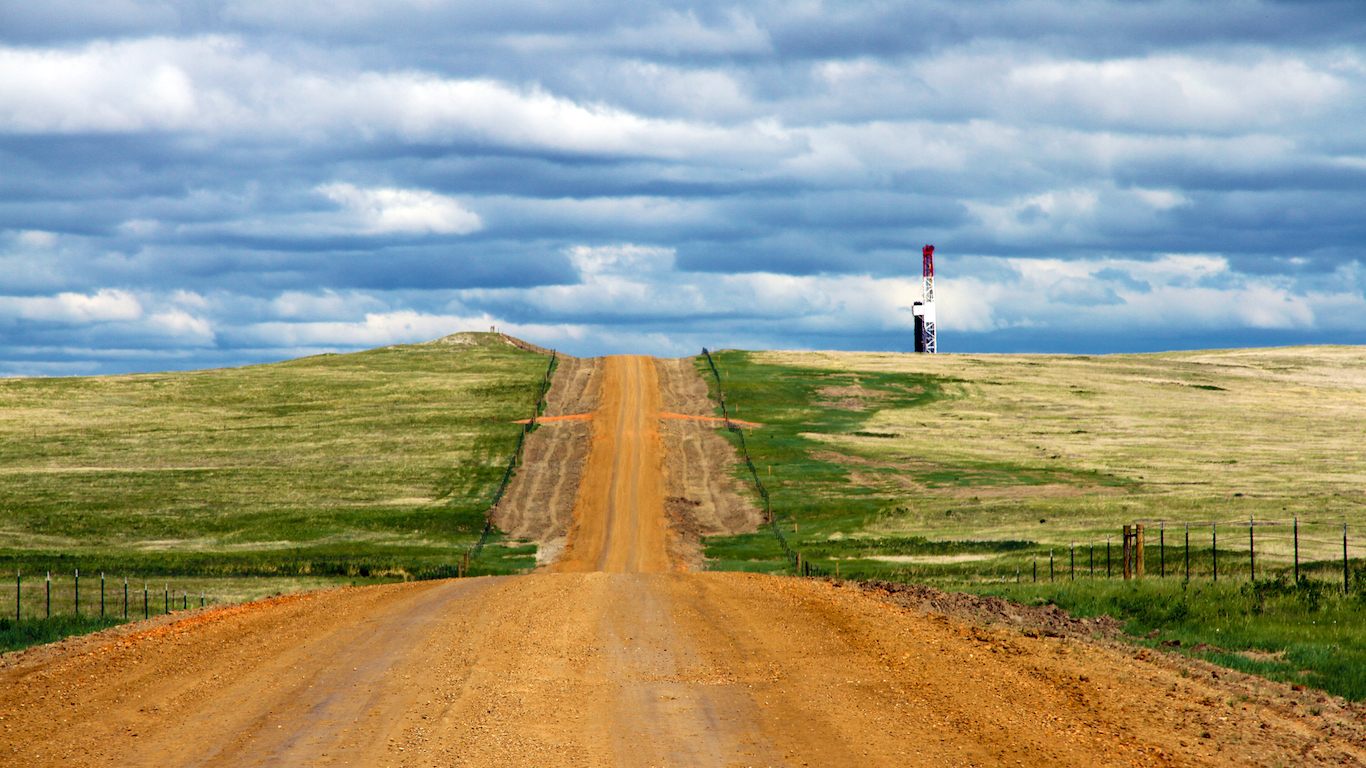Energy
Bakken Oil Field Giant Continental Eliminates Dividend, Slashes Production

Published:

In a terse announcement Tuesday morning, Continental Resources Inc. (NYSE: CLR) announced that it will cut production by 30% for the months of April and May. The company also said it is suspending its $0.20 annual dividend until further notice. Continental called the moves part of its “strategy to manage cash flow in a challenging commodity price environment.”
Continental has for years been among the top producers in the Bakken play that stretches across western North Dakota and northeastern Montana. But as the company noted in its announcement, the global “demand destruction attributable to COVID-19” has been estimated at around 30% and the company will cut production to meet that lowered demand estimate.
What’s interesting about the timing of the announcement is that it follows last Friday’s meeting between oil company executives and the U.S. president to discuss if and how the United States could participate in the production cuts proposed by the Saudis. The Trump administration is unlikely to restrict production by government mandate, so the oil companies are on their own. The administration and the Congress specifically left the country’s oil producers out of any targeted relief program under the $2.2 trillion relief legislation.
Continental’s founder and board chair, Harold Hamm, who has reportedly contributed more than $500,000 to the president’s reelection campaign, was among those who met with Trump. Given Continental’s announcement this morning, it seems reasonable to conclude that targeted relief for U.S. oil producers is off the table.
Hamm, playing to the president’s fondness for tariffs, has called for tariffs on imports of foreign oil if the Saudis and the Russians do not reduce production. Under last week’s proposal from the Saudis, a 10% production cut would take around 10 million barrels a day out of production. The Saudis would reduce production by 3 million barrels a day, the Russians by 1.5 million and the United States, Canada and Brazil would chop another 1.5 million barrels.
With global production of around 100 million barrels a day, though, 10 million barrels won’t stop the surplus flow of crude. Continental’s estimate of 30 million surplus barrels a day is probably closer to actual damage to demand.
Another of the Bakken play’s major producers, Whiting Petroleum, filed for bankruptcy protection last week. As of last December, Whiting reported $2.8 billion long-term debt, cash and equivalents of $8.65 million, and an accumulated deficit of $2.39 billion.
In its annual report for last year, Continental reported $5.32 billion in long-term debt, cash and equivalents of $39.4 million, and no accumulated deficit. A $1.1 billion bond maturing in 2022 traded on Monday at about two-thirds of its face value.
Continental’s management is making the moves it believes are necessary to help it survive the COVID-19 outbreak. The question remains whether it will be enough, especially if the economy is effectively shut down for longer than expected and if recovery from the shutdowns takes longer than expected.
In Tuesday’s premarket session, Continental stock traded up about 3.3%, at $9.80 in a 52-week range of $6.90 to $52.04. The stock’s consensus 12-month price target is $18.67.
Thank you for reading! Have some feedback for us?
Contact the 24/7 Wall St. editorial team.